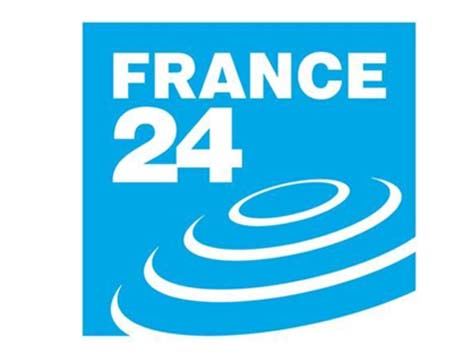"The piece, titled "What links the absence of French observers at Azerbaijan's February 7 presidential election, a group criticizing 'French colonialism,' and an online campaign against the 2024 Olympic Games in Paris?" establishes its tone by reiterating three recurring themes in official French discourse: questioning Azerbaijan's democratic status, contesting accusations of French neocolonialism, and suggesting that external entities aim to tarnish France's reputation during a significant event like the 2024 Olympic Games," the article in La Gazette du Caucase reads.
Jean-Michel Brun questions why the French media has suddenly become interested in Azerbaijan after ignoring it for many years.
"Since gaining independence in 1991, Azerbaijan has maintained excellent relations with France. Recognized for its devotion to secularism, multiculturalism, and improvements in women's rights, the country, led by President Heydar Aliyev, successfully weathered the transition from Soviet rule. The strong cultural ties between Azerbaijan and France even earned Baku the moniker "Caucasian Paris." However, in 1992, Armenia, eyeing the resource-rich region of Karabakh, launched an invasion. In 2020, frustrated by Armenia's reluctance to negotiate and the Minsk Group's ineffectiveness, Azerbaijan decided to independently reclaim its territories," the author explained.
The editor-in-chief of the newspaper highlighted that concurrently, in France, the Armenian community, particularly its more nationalist faction, assumed a significant role in both the political sphere and the media.
"Many political parties, including the ruling party, aligned with Armenian ultra-nationalist movements, adopting an anti-Baku stance. This stance ultimately eroded France's influence in the region. France refrained from participating in the reconstruction of Karabakh towns devastated by the Armenian occupation, entrusting the task to British or Italian companies. Major economic projects, like the construction of the Shafagh power plant, were awarded to British companies instead of French companies. This tolerant and rather clueless strategy not only reduced France's influence in Africa and the Caucasus, but also made her a laughingstock, abandoning her former allies. Following France's withdrawal, the US attempted to fill the hole but faced resistance, as Africa appeared to favor partners it considered more reliable, such as China and Russia," Jean-Michel Brun noted.
He emphasized that rather than seeking to improve its ties with Azerbaijan, France continued to bolster its backing for Armenian separatists. This extended to the extent of promising arms to Armenia, even as the latter engaged in direct negotiations with its neighbor.
"Hence, it comes as no surprise that Azerbaijan, formerly the leader of the Non-Aligned Movement until last year, has opted to back, via the Baku Initiative, communities fighting against colonialism and neocolonialism. Among these communities are those who perceive themselves as victims of French policy, particularly in the West Indies, Polynesia, and even Corsica," he added.
He remarked that the recent presidential election in Azerbaijan has presented a significant opportunity for both the French media and the French Foreign Ministry to resume their criticism of Baku.
"The foreign and interior ministries are still grappling with the revelation that two French intelligence agents were caught attempting to recruit a French businessman, Martin Ryan, residing in Baku. This incident proved too much for Bernard Émié, the head of France's foreign intelligence service, who, despite a series of significant errors, eventually received commendation from French President Emmanuel Macron. Despite the presence of 790 foreign observers from 72 international organizations representing 89 countries, "Voice of France" did not hold back on criticizing the final vote. According to the paper's editors, the absence of French observers would have rendered the election illegitimate. Any positive assessment from French observers would have been met with suspicion. France 24 TV channel echoes the term "caviar diplomacy," coined by the Armenian press, which inevitably accuses elected officials or journalists of corruption if they do not align with their criticisms of Azerbaijan.
Regarding black caviar, far from being a luxury in Azerbaijan, the only means to acquire it is through purchase at the exceptional stores in the old city of Baku. Even the restoration of French monuments, like Strasbourg Cathedral, funded by Azerbaijan, is perceived as a method to'strengthen influence in the political and media realm'," the author said.
He mentioned that France 24 also replicated a report from the Viginum agency, which claimed that Azerbaijan aimed to "discredit" the organization of the 2024 Olympic Games through videos and posts.
"As if we required Baku's assistance for that. The prefect and president of the Île-de-France region, the police, and the Court of Audit routinely highlight the amateurish approach to organizing the Games, particularly noting delays in various areas like security and transportation. French cartoonists are also taking a humorous approach, depicting Parisian rats eagerly awaiting the arrival of tourists. Viginum, characterized as the "French government agency for protection against foreign digital interference," is actually an offshoot of the General Secretariat of Defense and National Security, one of France's numerous intelligence services. Similar to the Directorate General of External Security responsible for the Ryan incident, Viginum not only gathers intelligence but also disseminates "information" of questionable reliability, akin to the foreign services it accuses of manipulation. Relying on their communiqués, journalists can indeed find themselves in a dubious position." Jean-Michel Brun concluded.
More about:
















































